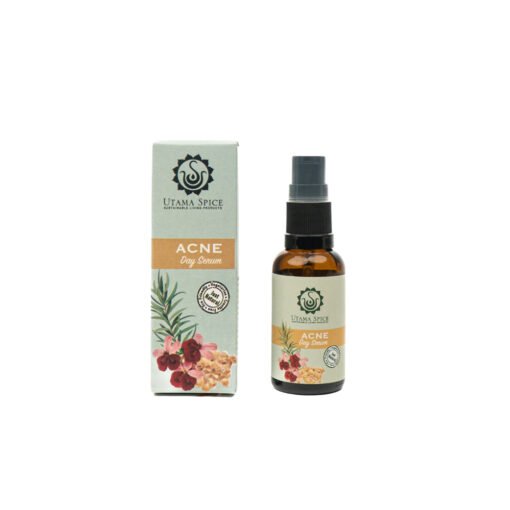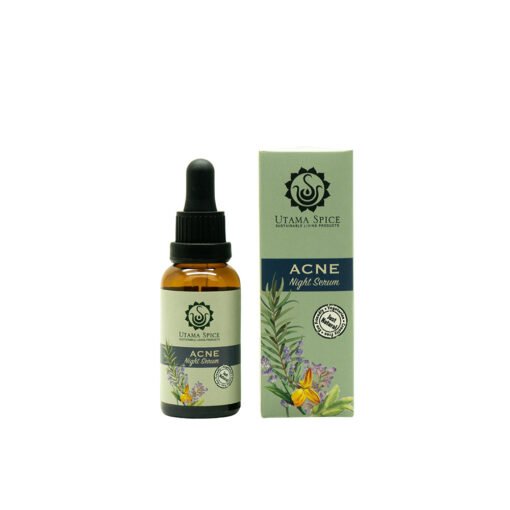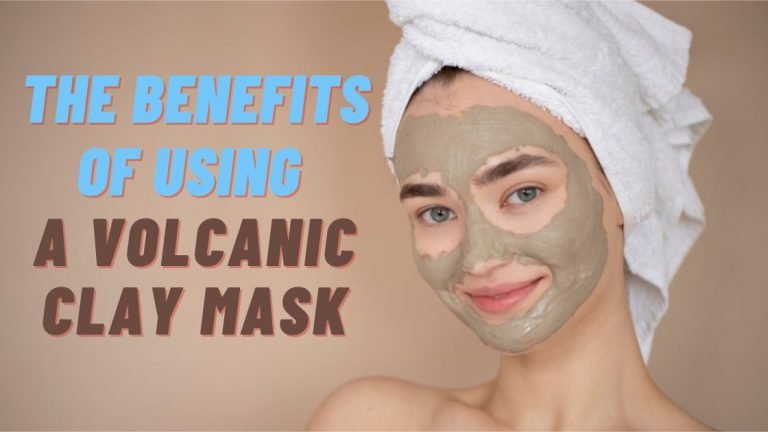Top Methods for the Holistic Treatment of Acne
Are you tired of battling relentless acne and feeling like you’ve tried everything without success? You’re not alone. Acne can be a frustrating and disheartening experience, but there’s hope. Dive into the world of holistic acne treatment and discover natural, effective methods that target the root causes of your skin troubles. Say goodbye to harsh chemicals and hello to a clearer, healthier complexion!
Essential Insights for Clearer Skin
- Acne is a chronic inflammatory disease influenced by various factors, including hormonal changes, diet, and genetic predisposition, necessitating a comprehensive understanding for effective treatment.
- Holistic treatments for acne focus on improving overall health by addressing internal imbalances and using natural remedies, thus avoiding harsh chemicals often present in conventional treatments.
- Lifestyle modifications, such as maintaining a balanced diet, managing stress, and establishing a consistent skincare routine, are essential for effectively managing acne and promoting skin health.
- Consider incorporating Utama Spice’s incredible line of natural acne treatment products into your routine for a holistic approach to clearer, healthier skin.
Understanding Acne
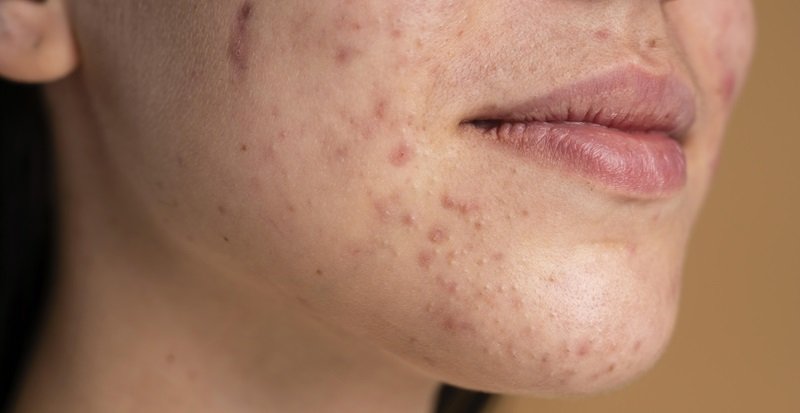
Acne is more than just a few pimples; it’s a chronic inflammatory disease that affects the pilosebaceous unit, which includes hair follicles and sebaceous glands.
When dead skin cells and oil block these pores, it leads to the formation of acne lesions, which can range from mild to severe cases.
Factors like:
- increased sebum production
- hyperkeratinization
- bacterial overgrowth
- inflammation
all play crucial roles in the development of acne vulgaris.
Understanding the underlying mechanisms of acne helps in identifying the best treatment approaches. Traditional methods often focus on surface symptoms, but addressing the root causes can lead to more effective and lasting solutions. This comprehensive understanding forms the foundation for exploring various treatment options, including holistic and natural remedies.
Types of Acne
Acne manifests in various forms, each requiring different treatment strategies. The most common types include:
- Mild acne, characterized by occasional pimples
- Moderate acne, which involves more frequent outbreaks
- Severe acne, marked by deep, painful cysts and nodules
Additionally, adult acne affects a significant portion of the population, with 12% of women experiencing breakouts well into their 30s and 40s.
Understanding the type of acne you have is essential for choosing the most effective treatments. For instance, while mild acne might respond well to simple home remedies, moderate to severe acne vulgaris often requires a more targeted approach. Recognizing these differences can guide you towards the right acne remedy and help decrease acne effectively.
Common Causes
Several factors contribute to the development of acne, with hormonal changes being a primary trigger. These fluctuations are particularly common during adolescence and adulthood, especially in women experiencing menopause. Diet also plays a significant role; high-glycemic foods and dairy products can increase insulin levels and sebum production, leading to breakouts.
Other underlying causes include genetic predispositions, certain medications, and endocrine disorders. Understanding these factors can help in identifying the triggers of your acne and formulating a more effective treatment plan. Addressing these root causes is crucial for achieving long-term relief from this persistent skin condition.
Benefits of Holistic Treatments for Acne

Holistic treatments for acne focus on improving overall health rather than just treating the visible symptoms. This approach addresses internal imbalances and hormonal issues, leading to more comprehensive and lasting relief. By concentrating on the body as a whole, holistic methods can enhance not just skin health, but also overall wellness, reducing the stress often associated with acne.
One of the significant benefits of holistic treatments is the avoidance of harsh chemicals. Conventional acne treatments can cause dryness, redness, and irritation, which holistic methods aim to prevent. Many medicinal plants used in holistic treatments have shown equal or higher efficacy compared to standard treatments for acne. This natural approach can be especially beneficial for those with sensitive skin, offering a gentler yet effective alternative.
Avoiding Harsh Chemicals
Avoiding harsh chemicals is crucial in treating acne, especially for those with sensitive skin prone to irritation. Natural treatments, such as honey, possess antibacterial properties that help block the growth of acne-causing bacteria like P. acnes. This makes honey a suitable natural remedy for acne without the risk of skin irritation.
However, it’s essential to be cautious with certain natural ingredients. For example, citrus juice can cause photosensitivity, leading to irritation and rashes. Choosing non-comedogenic products is also vital, as they prevent clogging pores and reducing acne breakouts.
Embracing natural treatments can thus help in maintaining healthy, clear skin without the adverse effects of chemical peels and other harsh treatments.
Supporting Overall Health
Holistic acne treatments go beyond skin-deep benefits, supporting overall health and wellness. Reducing stress is a critical aspect, as elevated stress levels can increase sebum production and trigger breakouts. Engaging in consistent physical activity helps balance hormones, contributing to improved skin health and overall well-being.
A balanced diet rich in antioxidants, such as fruits, vegetables, and whole grains, not only benefits the skin but also boosts overall health. Incorporating natural remedies like drinking green tea can enhance antioxidant intake, further supporting the body’s defense against inflammation and acne.
This holistic approach ensures that your skin reflects your internal health, leading to a clearer, healthier complexion.
Top Natural Remedies for Acne
Natural remedies offer effective solutions for treating acne without the harsh side effects of conventional treatments. Ingredients like tea tree oil, aloe vera, and green tea have been shown to reduce lesions, sebum production, and the severity of acne. These natural treatments not only improve acne but also enhance the quality of life by providing a gentler, more sustainable approach to skincare. Additionally, exploring natural acne treatments can further support this gentle approach.
Combining different herbal medicines can lead to synergistic therapeutic effects, maximizing the benefits of each ingredient. This section will explore various natural remedies, their benefits, and how to use them effectively to treat acne. By understanding and utilizing these natural treatments, you can achieve clearer skin while supporting your overall health.
Tea Tree Oil
Tea tree oil is a powerful natural remedy for acne, known for its antibacterial and anti-inflammatory properties. It can effectively reduce breakouts and soothe redness and swelling, making it a viable alternative to traditional topical antibiotics. However, it’s essential to use tea tree oil correctly to avoid potential skin drying or allergic reactions.
To use tea tree oil for acne treatment, always dilute it with a carrier oil like jojoba oil or mix it with water. Apply a drop of this diluted mixture to the affected area using a cotton swab. This method ensures that you reap the benefits of tea tree oil without risking skin irritation.
Always spot-test on a small skin area first and discontinue use if irritation occurs.
Aloe Vera
Aloe vera is renowned for its soothing and anti-inflammatory properties, making it an excellent choice for acne-prone skin. It contains ingredients like salicylic acid and zinc, which help reduce and prevent blackheads and whiteheads. Applying a thin layer of aloe vera gel to clean skin twice a day can calm red, irritated pimples and support the skin’s healing process.
Research indicates that combining aloe vera with other treatments may enhance its anti-acne effects. This versatile plant not only helps in treating acne but also offers a cooling, soothing sensation that can alleviate skin irritation. Embracing aloe vera as part of your skincare routine can lead to clearer, more balanced skin.
Green Tea
Green tea is another potent natural remedy for acne, thanks to its anti-inflammatory and antioxidant properties. It can reduce sebum secretion, promote circulation, and aid in the healing of the skin. To use green tea topically, infuse the tea, let it cool, and apply it to the skin using tea bags or a cotton ball.
Drinking green tea regularly can also contribute to better skin health by providing antioxidants that combat inflammation and support overall wellness. This dual approach of topical application and oral consumption makes green tea a versatile and effective acne treatment.
Incorporating green tea into your routine can help you achieve a healthier complexion from the inside out.
Honey
Honey is well-known for its antibacterial properties, making it an effective natural remedy for acne. Applying pure honey to acne lesions can inhibit the growth of acne-causing bacteria and promote healing. Manuka honey, in particular, has been shown to be highly effective in treating acne due to its potent antimicrobial properties.
While honey can be beneficial, it’s important to note that it doesn’t penetrate pores as deeply as some other treatments. For enhanced effects, honey can be mixed with other natural ingredients like aloe vera. This combination not only combats acne but also provides a soothing, moisturizing effect on the skin.
Incorporating honey into your skincare routine can enhance its overall effectiveness.
Zinc Supplements
Zinc supplements play a crucial role in reducing acne by regulating sebum production and decreasing inflammation. Studies have shown that a concentration of 5% zinc can significantly reduce the number of inflammatory acne lesions. Incorporating zinc into your diet or skincare routine can thus lead to noticeable improvements in acne.
Zinc’s effectiveness in treating acne lies in its ability to balance hormones and support the immune system. This mineral can be taken as a supplement or found in certain foods like nuts, seeds, and whole grains. Ensuring adequate zinc intake can help maintain clear, healthy skin and reduce the severity of acne outbreaks.
Lifestyle Changes to Improve Acne
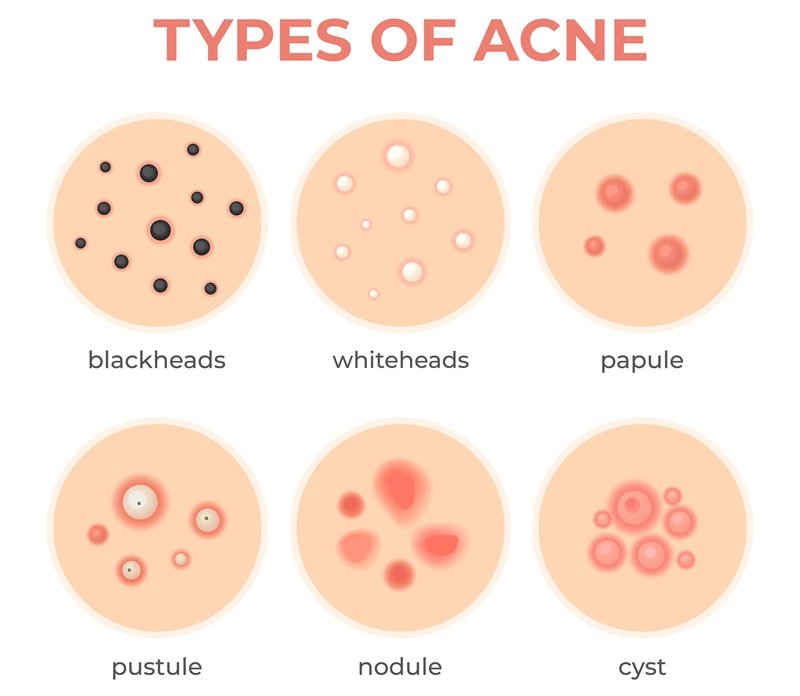
Making lifestyle adjustments can have a significant impact on acne. Here are some key changes to consider:
- Stay Hydrated: Hydration is essential, as dry skin can lead to increased oil production and irritation, exacerbating acne.
- Manage Stress: Elevated stress levels can trigger breakouts by increasing sebum production.
- Practice Relaxation Techniques: Techniques like yoga, meditation, and spending time with friends can effectively reduce stress and improve skin health.
By implementing these lifestyle adjustments, you can help manage and reduce acne effectively.
Regular exercise is another vital component, as it helps balance hormones and reduce stress, both of which are linked to acne flare-ups. These lifestyle changes not only support clearer skin but also enhance overall well-being. By incorporating these habits into your daily routine, you can achieve a healthier, more balanced complexion.
Diet Modifications
Diet plays a significant role in managing acne. High-glycemic index foods, such as processed carbohydrates and sweets, can increase insulin levels and sebum production, leading to breakouts. Conversely, a low-glycemic diet that includes fresh vegetables, beans, and whole grains can reduce acne occurrences.
Dairy consumption, particularly cow’s milk, has also been associated with higher acne rates. Reducing or eliminating dairy from your diet can help decrease acne breakouts.
Making these dietary changes can lead to clearer skin and overall improved health. Embracing a balanced, nutrient-rich diet is a key step towards managing acne effectively.
Stress Management
Stress is a known contributor to acne flare-ups, as it can trigger an inflammatory response in the body that exacerbates skin conditions. Practicing relaxation techniques such as mindfulness, yoga, and deep breathing exercises can help lower cortisol levels, reducing the likelihood of stress-induced acne breakouts. These techniques are not only beneficial for your skin but also for your overall mental health.
Engaging in activities that promote relaxation and reduce stress can effectively improve your skin condition. Whether it’s taking a walk in nature, listening to calming music, or spending time with loved ones, finding ways to manage stress can significantly decrease the frequency and severity of acne. Incorporating stress management into your daily routine is a vital component of holistic acne care.
Regular Exercise
Regular exercise is essential for maintaining healthy skin. Physical activity helps regulate hormones such as cortisol and androgens, which are linked to acne flare-ups. Exercise also boosts circulation, promoting the delivery of oxygen and nutrients to the skin, aiding in its overall health and appearance.
Incorporating activities like jogging, cycling, or even brisk walking into your routine can reduce stress levels and improve your skin’s condition. Engaging in regular physical exercise not only helps in reducing acne breakouts but also supports overall well-being.
By making exercise a part of your daily life, you can achieve clearer skin and a healthier lifestyle.
Effective Skincare Routine for Acne-Prone Skin
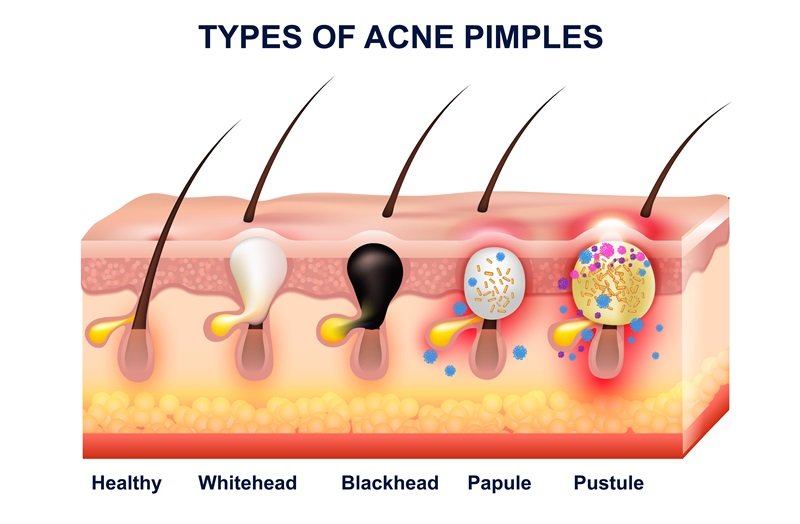
Establishing an effective skincare routine is crucial for managing acne-prone skin. Using products that are non-comedogenic and designed for sensitive skin can prevent clogged pores and reduce breakouts. It’s essential to choose mild, natural cleansers that maintain the skin’s natural barrier and pH balance to minimize irritation.
A comprehensive skincare routine should also include topical treatments like retinoids and salicylic acid, which help prevent clogged pores and reduce inflammation. Hydrating and moisturizing the skin with non-comedogenic products is vital to keep the skin healthy and prevent overproduction of oil.
This section will guide you through the key steps and products needed to create an effective skincare regimen for acne-prone skin.
Choosing the Right Cleanser
Choosing the right cleanser is the first step in an effective skincare routine for acne-prone skin. Chemical-free products are less likely to disrupt the skin’s natural barrier, reducing the risk of irritation. Mild cleansers that maintain a balanced pH can help minimize irritation and support the healing of acne-prone skin.
Prioritizing gentle, natural cleansers in your skincare regime can lead to clearer, healthier skin. Look for cleansers that are labeled as non-comedogenic to prevent clogging pores and exacerbating breakouts. By selecting the right cleanser, you lay the foundation for a skincare routine that supports clear and healthy skin.
Using Topical Treatments
Topical treatment is essential for managing acne effectively. Retinoids, such as tretinoin and adapalene, are commonly prescribed for moderate acne and help prevent clogged pores. These treatments can be combined with antibiotics to reduce inflammation and bacteria on the skin, enhancing their effectiveness.
Nonprescription products containing benzoyl peroxide and salicylic acid are also beneficial for treating acne at home. Salicylic acid, in particular, is effective for preventing clogged pores and is available in both wash-off and leave-on forms. Using these treatments consistently can help reduce acne lesions and improve overall skin health.
Hydration and Moisturization
Keeping the skin hydrated is crucial for maintaining its health and preventing overproduction of oil that can lead to acne. Non-comedogenic moisturizers help ensure that pores do not get clogged, which can exacerbate acne. When selecting a moisturizer, look for options that are fragrance-free to minimize irritation on the skin.
Consistently applying the right moisturizer can improve overall skin texture and appearance in acne-prone individuals. Hydration and moisturization should be integral parts of your skincare routine to support clear, healthy skin. By keeping the skin properly hydrated, you can prevent excess oil production and maintain a balanced complexion.
Utama Spice’s Holistic Acne Treatment Products
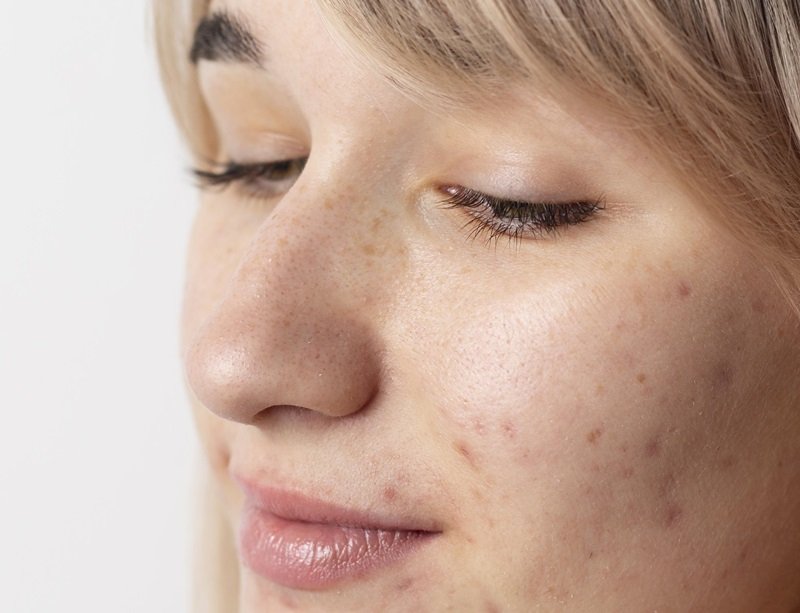
Utama Spice offers a range of products made from pure, organic ingredients designed for holistic acne management. These products focus on treating acne without harmful chemicals, making them suitable for sensitive skin and those seeking natural remedies. The holistic approach of Utama Spice ensures that their products not only address acne but also promote overall skin health.
By incorporating Utama Spice’s holistic acne treatment products into your skincare routine, you can effectively manage acne while supporting your skin’s natural balance.
This section will explore the key products offered by Utama Spice, including the Acne Facial Wash, Acne Treatment Oil, Acne Day Serum, and Acne Night Serum. Each product is designed to provide specific benefits and support a comprehensive approach to treating acne holistically.
The key products offered by Utama Spice include:
- Acne Facial Wash
- Acne Treatment Oil
- Acne Day Serum
- Acne Night Serum
Each product is designed to provide specific benefits and support a comprehensive approach to treating acne holistically.
Acne Facial Wash
Utama Spice’s Acne Facial Wash is designed to gently cleanse the skin while addressing acne concerns. Key ingredients include natural components like essential oils, which offer antibacterial properties and soothing agents to calm irritated skin. To use the Acne Facial Wash, apply a small amount to damp skin, massage gently, and rinse thoroughly with lukewarm water.
The benefits of using the Acne Facial Wash include reducing acne breakouts, preventing clogged pores, and improving skin texture. This product helps maintain clear and healthy skin without the harsh effects of conventional acne treatments. By incorporating this facial wash into your daily routine, you can enhance your overall skincare regimen.
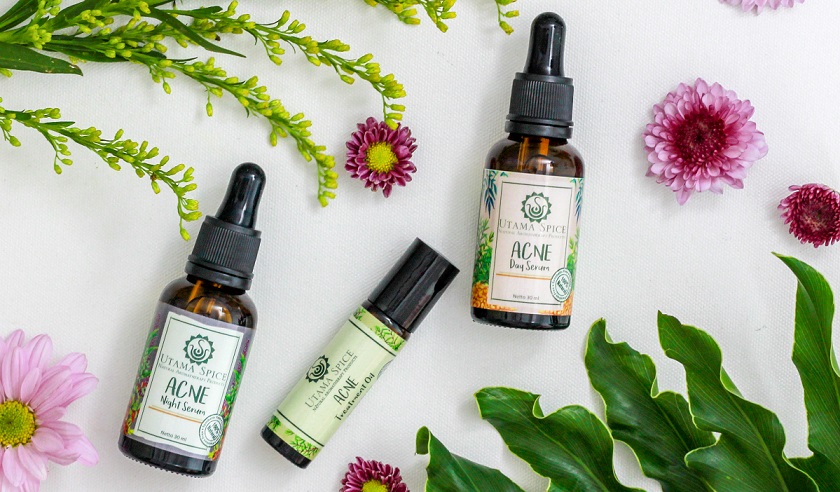
Acne Treatment Oil
The Acne Treatment Oil is designed to reduce inflammation and redness while promoting the healing of acne-prone skin. Key ingredients in the Acne Treatment Oil may include tea tree oil, which is known for its antibacterial properties, along with other natural extracts that nourish the skin.
To apply the Acne Treatment Oil, cleanse the skin first, then apply a few drops directly onto the affected areas, gently massaging it in until fully absorbed. This oil helps treat stubborn blemishes and reduce the size of pimples without the harsh chemicals that can irritate the skin.
By incorporating the Acne Treatment Oil into your skincare routine, you can achieve clearer skin while supporting your skin’s natural healing processes.
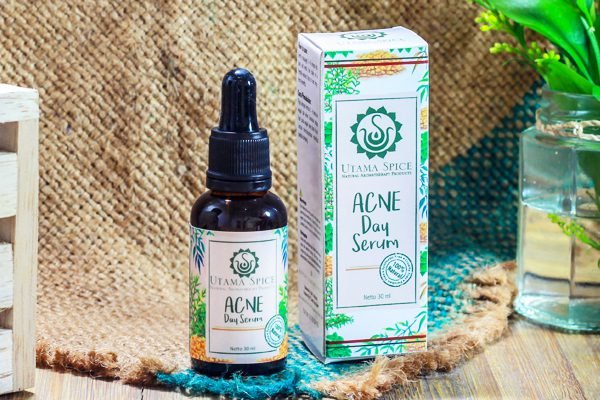
Acne Day Serum
The Acne Day Serum helps control oil production, reduce acne lesions, and prevent new breakouts. Key ingredients in the Acne Day Serum include natural extracts known for their anti-inflammatory and antibacterial properties. To use the Acne Day Serum, apply a small amount to the cleansed face before moisturizer, focusing on areas of concern.
This serum not only combats active acne but also assists in healing past skin blemishes. By incorporating the Acne Day Serum into your daily skincare routine, you can maintain a clear complexion and support overall skin health.
This product offers a gentle yet effective approach to managing acne during the day.

Acne Night Serum
The Acne Night Serum is designed to repair and soothe the skin overnight, incorporating calming essential oils. This serum contains soothing ingredients that help repair and rejuvenate the skin while you sleep. To use the Acne Night Serum, apply it to a cleansed face before bed, allowing it to work overnight.
Utama Spice’s Acne Night Serum includes natural ingredients that enhance the overall texture and appearance of your skin. By incorporating this serum into your nighttime skincare routine, you can achieve clearer skin and wake up to a rejuvenated complexion. This product offers a holistic approach to managing acne and supporting skin health during the night.
When to See a Dermatologist
While holistic treatments and lifestyle changes can significantly improve acne, there are times when seeing a dermatologist is necessary. Persistent acne that does not respond to over-the-counter treatments may require prescription medication. If you have severe acne, consulting a dermatologist is advisable to avoid long-term skin damage and scarring.
Moderate to severe acne should prompt individuals to seek professional help, as it often necessitates more targeted treatments. Recognizing when to seek professional medical advice is crucial for effective acne management. A dermatologist can provide personalized treatments and guidance to help you achieve clearer skin and prevent complications.
Top Methods for the Holistic Treatment of Acne: Final Words
In summary, holistic treatments offer a comprehensive approach to managing acne by focusing on overall health and well-being. Natural remedies like tea tree oil, aloe vera, green tea, and honey provide effective solutions without the harsh side effects of conventional treatments. Lifestyle changes, including diet modifications, stress management, and regular exercise, play a vital role in improving skin health.
Incorporating a proper skincare routine and using products like those offered by Utama Spice can further enhance your efforts to treat acne naturally. By embracing these holistic methods, you can achieve clearer skin and support your overall health. Remember, taking care of your skin is a journey that involves nurturing your body and mind. Stay committed to these practices, and enjoy the benefits of a healthier, more radiant complexion.
Frequently Asked Questions
What are the benefits of using Utama Spice’s Acne Facial Wash?
The Acne Facial Wash from Utama Spice effectively cleanses the skin, reduces acne breakouts, prevents clogged pores, and enhances skin texture through its natural ingredients, including essential oils. This product is beneficial for achieving clearer and healthier skin.
How does tea tree oil help in treating acne?
Tea tree oil effectively treats acne due to its antibacterial and anti-inflammatory properties, which help reduce breakouts, minimize redness, and soothe inflammation.
What lifestyle changes can help improve acne?
Incorporating hydration, effective stress management techniques, and regular physical activity into your routine can greatly enhance skin health and mitigate acne breakouts. These lifestyle changes can lead to significant improvements in your skin’s appearance.
Why is it important to avoid harsh chemicals in acne treatments?
It is important to avoid harsh chemicals in acne treatments because they can lead to dryness, redness, and irritation, potentially worsening the condition. Opting for natural alternatives such as honey and aloe vera can provide effective relief without these harmful side effects.
When should I see a dermatologist for my acne?
You should see a dermatologist for your acne if it is persistent, severe, or causing scarring. Early intervention can prevent long-term skin damage and improve your condition effectively.


